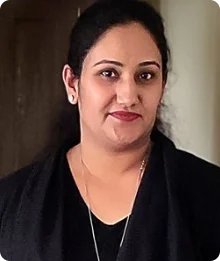Cancer is the second most common cause of death after heart disease. The treatment of cancer depends upon the type of cancer and at what stage it is being diagnosed. Due to low socioeconomic status and low literacy rate, patients often opt traditional methods and alternative medicines instead of seeking proper treatment. There are numerous methods such as surgery, radiation therapy, chemotherapy, stem cell transplant, etc., which are being used for the treatment of cancer. However, the major concerns associated with these therapies are their adverse effects and the recurrence of the disease. Nowadays, immunotherapy is budding as a promising method for the treatment of cancer as it is associated with minimal adverse effects and low risk of disease recurrence.
The emergence of immunotherapy, i.e., using body’s own immune system, to fight with cancer has been seen from the past two decades. William B. Coley, father of immunotherapy, was the first person to use immune system to treat cancer in the late 19th century. Recently, researchers have developed and approved a new Chimeric Antigen receptor (CAR) T- cell therapy for the treatment of cancer.
CAR T-cell Therapy: A Promising Therapy to Fight Cancer
CAR T-cell is a new therapy that has shown favorable result in the treatment of the cancer. This therapy uses T-cells from the patient’s cell which are further modified to target cancer cells. The therapy is a type of cellular therapy which functions by using body’s own immune system to destroy cancer cells.
Since the treatment involves extraction of T-cells from the blood, the patients may face the risk of infection and may temporarily have low blood cell counts and need transfusion support.
CAR T-cell Therapy: Updated Status
CAR T-cell therapy has been found to be effective in the treatment of cancer and also received approval from Food and Drug Administration (FDA) for cancer treatment. Novartis was the first ever company to receive the United States (US) FDA approval for CAR T-cell (Kymriah (TM) (CTL019)) therapy in August 2017 after years of research and clinical trials. Kymriah is the first gene therapy that is approved for the pediatric and young adult patients with a form of acute lymphoblastic leukemia (ALL).
Kite’s Yescarta (Axicabtagene Ciloleucel) is the second most CAR T-cell therapy which got FDA approval in October 2017 to treat adults with certain types of large B-cell lymphoma. Yescarta is the first approved therapy for certain types of non-Hodgkin lymphoma (NHL).
An ongoing phase I clinical trial (NCT00968760) is focusing on the use of gene transfer in patients with advanced B-cell lymphoma. Another interventional clinical trial, in phase I (NCT02186860), aims to determine safety and effectiveness of third generation CART-cells in patients with refractory acute lymphoblastic leukemia. The results of both the clinical trials are awaited.
CAR T-cell therapy: Pharmaceutical development
Several companies such as Novartis, Bluebird bio, Kite Pharma and Juno therapeutics are in lead to develop CAR T-cell therapy. Recently, Gilead and Kite Pharma associated with Pfizer to work on a combination of Yescarta-Utomilumab, which could be beneficial in treating certain blood cancers.
CAR T-cell therapy is one of the recent advancements in the field of cancer immunotherapy and Turacoz Healthcare Solutions (THS) aims to keep professionals updated on the recent advancement in cancer therapeutics and patient care. Turacoz is dedicated in providing scientific/medical writing support to the industry and academia. With expertise in several clinical trial related documents such as Investigator Brochures (IBs), Protocols, Clinical Study Reports (CSRs) and Common Technical Documents (CTDs), Prescribing Information (PI), we aim to deliver the best quality and guideline compliant documents to the Pharma and different sectors of healthcare Industry.






























